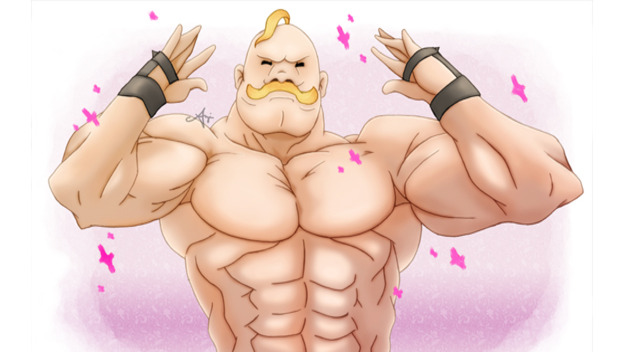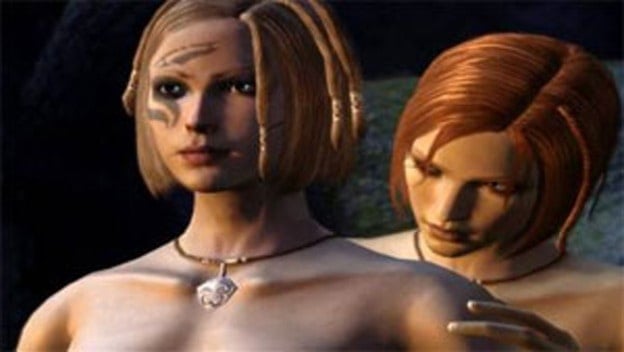Here’s a simple question: How many video games have you played that have used the word “gay” in any context? My guess is not many. In fact, I’d be willing to bet you haven’t played a single one.
There’s a good reason for this, actually. It’s really just a matter of writers and developers protecting themselves. If they ever used “gay” in a derogatory sense, no matter how homophobic the character they are writing is, then they themselves are opening the doors to accusations of being homophobic themselves.
And that’s understandable. That word holds a lot of pain for a lot of people, and it can ignite a whole mess of arguments and complaints that no writer or game developer wants to deal with. Not to mention the fact that it’s just not nice or socially acceptable to use “gay” in a derogatory way in our current day and age. For a similar reason, this is why writers won’t have characters spouting racial slurs in video games, unless you are playing Grand Theft Auto or L.A. Noire or something.
However, the more peculiar thing is that the G-word isn’t used in a non-derogatory fashion either. Writers won’t use it to describe homosexual characters, and trust me, homosexual video game characters have been created in the past. Anyone who has played a JRPG is familiar with the incredibly flamboyant anime stereotype. These characters sometimes go as far as hitting on other male characters, yet their sexuality is never directly addressed. Why is that?
Once again, it’s a matter of developers and writers protecting themselves. It adds a bit of deniability to any openly homosexual character they create. As long as they never confirm that their character is gay, then the people who are put off by homosexuality can deny that aspect of the character all they want. They can always back up and say, “Woah, the game never said he was gay, so obviously he isn’t.” They will layer on all sorts of excuses like “He’s just confused,” “He’s just awkward around girls,” or the absurdly common “They are just really good friends.”
Now, this is actually good business. Leaving the sexuality of a possibly gay character ambiguous makes the character appealing to a larger group of people. You won’t find people refusing to play the game because they feel awkward about homosexuality. Similarly, you will find people playing the game just because of the homosexuality that was never explicitly stated. Now you have one group of people who is supporting the game because the developers had the guts to insert a gay character, and another group of people who is supporting the game because those developers didn’t have the guts to explicitly state it.
But how positive is this from a purely artistic standpoint?
Let’s examine Kanji Tatsumi from Persona 4 as an example. If you ask me, Kanji is gay. Persona 4’s plot hook is that kids are being thrown into nightmare worlds that represent their inner insecurities and self-identification problems, and they can only escape when they cease being in denial and accept their “shadow” as part of themselves. Kanji’s nightmare world is an all-male bathhouse, and his shadow is a mostly naked version of himself that acts and speaks very flamboyantly. When his shadow turns into a monster, it turns into a huge muscular bodybuilder that wields two solid gold Mars symbols as weapons. Oh, and its head is actually a skinnier naked male on a bed of roses. This boss is accompanied by two other bodybuilding monsters dressed in thongs. <i> This </i> was what Kanji eventually had to accept as part of himself, and despite all of this evidence, there are still Persona 4 players who insist vehemently that he isn’t gay or even bisexual.
But let’s humor these people for a while. Because the game leaves Kanji’s sexuality open, he can be read in two ways. In the first, Kanji is young gay male with a tough street punk personality. Unfortunately, society’s perception of homosexuality and his own tough identity come into conflict. This makes him reject certain more “girly” pastimes that he is actually quite fond of, like sewing. However, through the support of his friends, and an unfortunate trip to a nightmare world, Kanji learns to accept his identity and be true to himself. That’s one reading of the character.
However, if you make Kanji straight, things start to get a little muddled. If he is “just weird around girls” but straight nonetheless, then the story doesn’t paint him as a character who is overcoming issues with sexual identity, but rather a homophobe. These nightmare worlds represent any character’s inner issues and fears, so if Kanji isn’t gay, then the formation of his nightmare world and shadow can only suggest that he is quite literally terrified of being gay. Once again, we are reading him as a straight character, which means he has the biggest aversion to homosexuality in the party.
Not only that, but throughout the game he constantly shouts at people who allude to him “liking dudes.” He starts fights and arguments and generally goes into horrible denial. If you read him as a queer character, this is evidence of him struggling with his own identity. If you read him as straight, then once again he’s being homophobic. The very mention of homosexuality puts him into a rage, and that’s actually pretty insulting. He reacts so vehemently negatively toward the idea of “liking dudes” that he is practically painted as a bigot.

So one reading gives us a progressively portrayed gay character struggling with his identity in his youth. Another reading gives us a homophobic street punk who has a softer side and likes to sew. One reading sees a character getting over his issues with identity over the course of the game, while the other sees an essentially non-changing behavior pattern from start to finish. Gay Kanji slowly comes to accept himself, while homophobic Kanji is homophobic right up until the end credits. Yet there are still masses of fans that prefer the straight reading, just because they don’t have to cope with liking a gay character.
And this comes despite the massive amount of external evidence that says Kanji is gay. The developers have claimed to have made these aspects of Kanji’s character “more subtle” in the English version of the game. Troy Baker, Kanji’s voice actor, mentioned in an interview that the people at Atlus outright told him that Kanji was gay. In the face of all of this, the deniability of never saying the G-word wins out in a depressingly high amount of fans. If you need evidence of this, just look for the denial party in the comments below.
That, my friends, is why developers and writers will never use the G-word, because anyone who isn’t comfortable with a gay character will probably avoid any game with gay characters in it. As I said before, this is good business in the short term, but it doesn’t do much to advance gaming as a whole. There are lots of interesting stories about gay characters out there that can be told, but we are holding ourselves back as an industry by refusing to acknowledge any sexuality other than heterosexuality.
In order to truly explore these sorts of themes, someone is going to have to bite the bullet and have a character flat-out admit to being gay. The moment this happens will be a moment that revolutionizes storytelling in gaming. Unfortunately, it will also turn a lot of people off to whichever game decides to take this leap. But <i>someone</i> has to have the artistic integrity to do it. I think it’s time for gaming to mature enough as a medium to start tackling issues of non-heterosexual identity. Agreed?
 | By Angelo M. D’Argenio News Director Date: December 21, 2012 |
